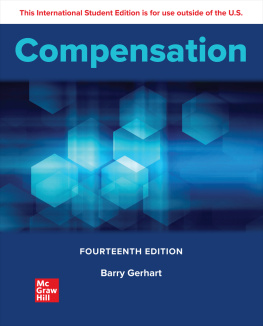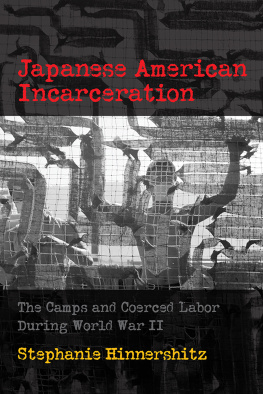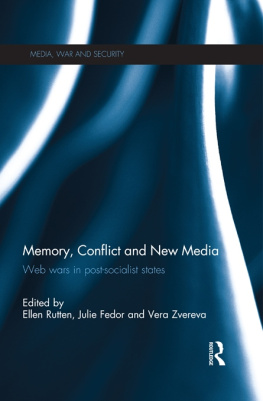Originally published in 2002 by Studien Verlag.
Published in 2004 by Transaction Publishers.
Published 2017 by Routledge
2 Park Square, Milton Park, Abingdon, Oxon 0X14 4RN
711 Third Avenue, New York, NY 10017, USA
Routledge is an imprint of the Taylor & Francis Group, an informa business
All rights reserved. No part of this book may be reprinted or reproduced or utilised in any form or by any electronic, mechanical, or other means, now known or hereafter invented, including photocopying and recording, or in any information storage or retrieval system, without permission in writing from the publishers.
Notice:
Product or corporate names may be trademarks or registered trademarks, and are used only for identification and explanation without intent to infringe.
Library of Congress Catalog Number: 2004044004
Library of Congress Cataloging-in-Publication Data
Revisiting the National Socialist legacy : coming to terms with forced labor, expropriation, compensation, and restitution / Oliver Rathkolb, editor.
p. cm.
Includes essays presented at a conference on Holocaust era assets held in Oct. 2001.
Originally published: Innsbruck: StudienVerlag, 2002.
Includes bibliographical references.
ISBN 0-7658-0596-0 (alk. paper)
1. World War, 1939-1945Confiscations and contributionsCongresses.
2. World War, 1939-1945ClaimsCongresses. I. Rathkolb, Oliver.
D810.C8R48 2004
940.53'18144dc22 2004044004
ISBN 13: 978-0-7658-0596-6 (hbk)
In October 2001, the Bruno Kreisky Archives Foundation organized and hosted an international conference dealing with the topic of Holocaust Era Assets in Europe, the US and Latin America. The papers presented and discussed dealt with recent discussions surrounding both the reexamination of the history of National Socialist property theft and employment of forced labor in the wartime economy, and the various compensation and restitution solutions in different European and Latin American countries since 1945. This book is based not only on the written and enlarged versions of the papers presented, but also includes a number of experts who were not able to participate in the meeting.
Particular attention is devoted to the role of numerous historical commissions and to the tension between judicial processes, media coverage, historical scholarship, and politics. Through a series of private and public research contracts over the past several years dealing with the theme of Holocaust Era Assets, the Bruno Kreisky Archives Foundation has developed a particular expertise in this area and has gained an international reputation for its work.
Public discussion of the above-mentioned aspects of National Socialist history has been conducted with particular intensity and great vehemence in Europe and in North America and in parts of Latin America. Thus, alongside the legal and material resolutions dealing with compensation and restitution questions, a thorough investigation ijito the critical, scholarly discussion of the role and the limits of national historical commissions, of the political and social composition of these commissions, and the expectations surrounding their work form an important part of the contemporary debate over the Nazi past. Extensive evaluation of this kind has rarely taken place on national or international levels and, therefore, appears to be all the more necessary and desirable.
The first part of the book deals with the Historical Commissions at the Nexus of Justice, Media Coverage, Historical Scholarship and Politics and establishes the parameters for subsequent analysis of the role, the possibilities, and the limits of national historical commissions, the political and social background of these commissions, and the expectations of the central negotiators in Germany, Austria, and the United States.
The second part focuses on the concrete analytical work of the historical commissions, entitled Commissioned History. What will be the role of national historical commissions and the tensions between historical scholarship, politics, and media coverage? The ways in which Swiss, German, Austrian and other banks handled plundered money and anonymous accounts generated international interest in the mid-1990s. Class-action suits in the United States and the discussion surrounding compensation of former forced laborers attracted popular attention in Europe, the United States, and in Latin America and led to efforts to disclose the actual extent of National Socialist plundering.
In order to clarify these questions, many states created historical commissions entrusted with investigating the extent of National Socialist thefts and the practice of compensation and restitution since 1945. Needless to say, the motivations and the scope for these commissions activities varied from one state to another. These issues will be taken up in comparative context by participants from Argentina, Austria, France, Germany, Lithuania, the Netherlands, Russia, Spain, Switzerland, Ukraine, and the USA. Special consideration will be placed upon social debates surrounding the work of these commissions, the judicial processes, the resulting compensation awards, and the emerging historiography in each country.
The third part addresses the theme of forced labor. Exploitation of millions of forced laborers for the Nazi war economy took on various forms (e.g. prisoners-of-war, abduction from areas controlled by the Wehrmacht, voluntary migrant workers, and Jewish forced labor). Indeed, forced labor represented the most extensive, commonplace, and publicly visible form of crimes against humanity perpetrated by the National Socialist regime. The exploitation of forced laborers and prisoners-of-war found broad acceptance within the German and Austrian populations, which served, in part, to support this criminal system.
The National Socialist regime made use of these sentiments, combined with latent and newly-fomented everyday racism, in order to carry out its uniquely criminal and inhuman system of industrial exploitation - and annihilation - of millions of people. According to the historian Ulrich Herbert, this system of forced labor in the Third Reich is the most manifest expression of a modern industrial society organized entirely on the principle of race. Thus, it seems all the more astonishing that intense discussion of the fate of forced laborers only recently found expression in public and historiographic discourses. Moreover, for a variety of reasons, the discussion of the fate of prisoners-of-war still lags far behind the discourse on forced laborers. These features of the National Socialist system of forced labor, as well as the public, political, and academic debates associated with them, will be analyzed within the context of the conference.








